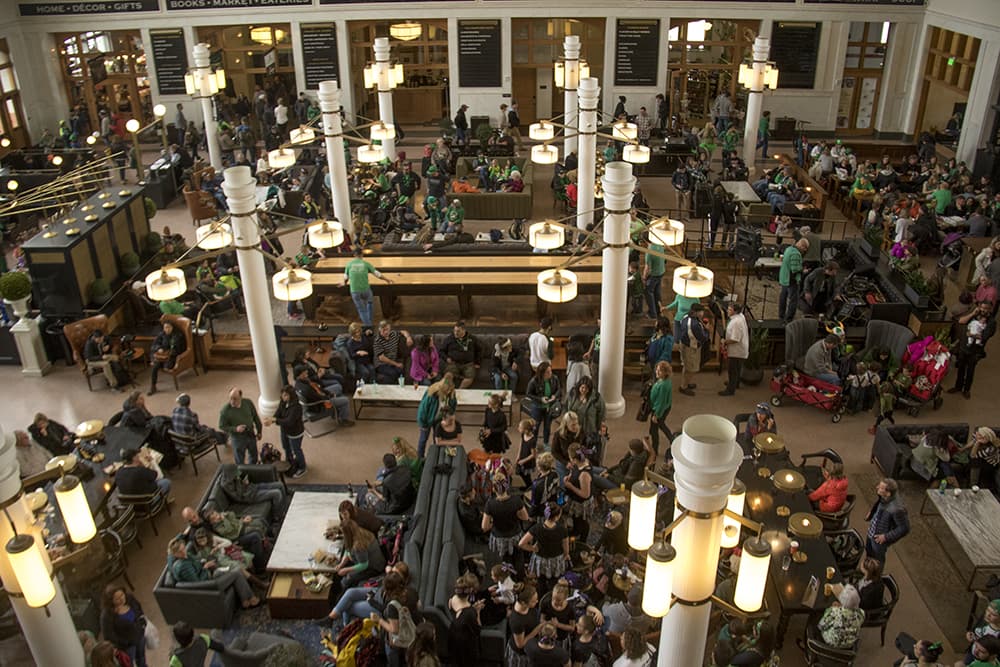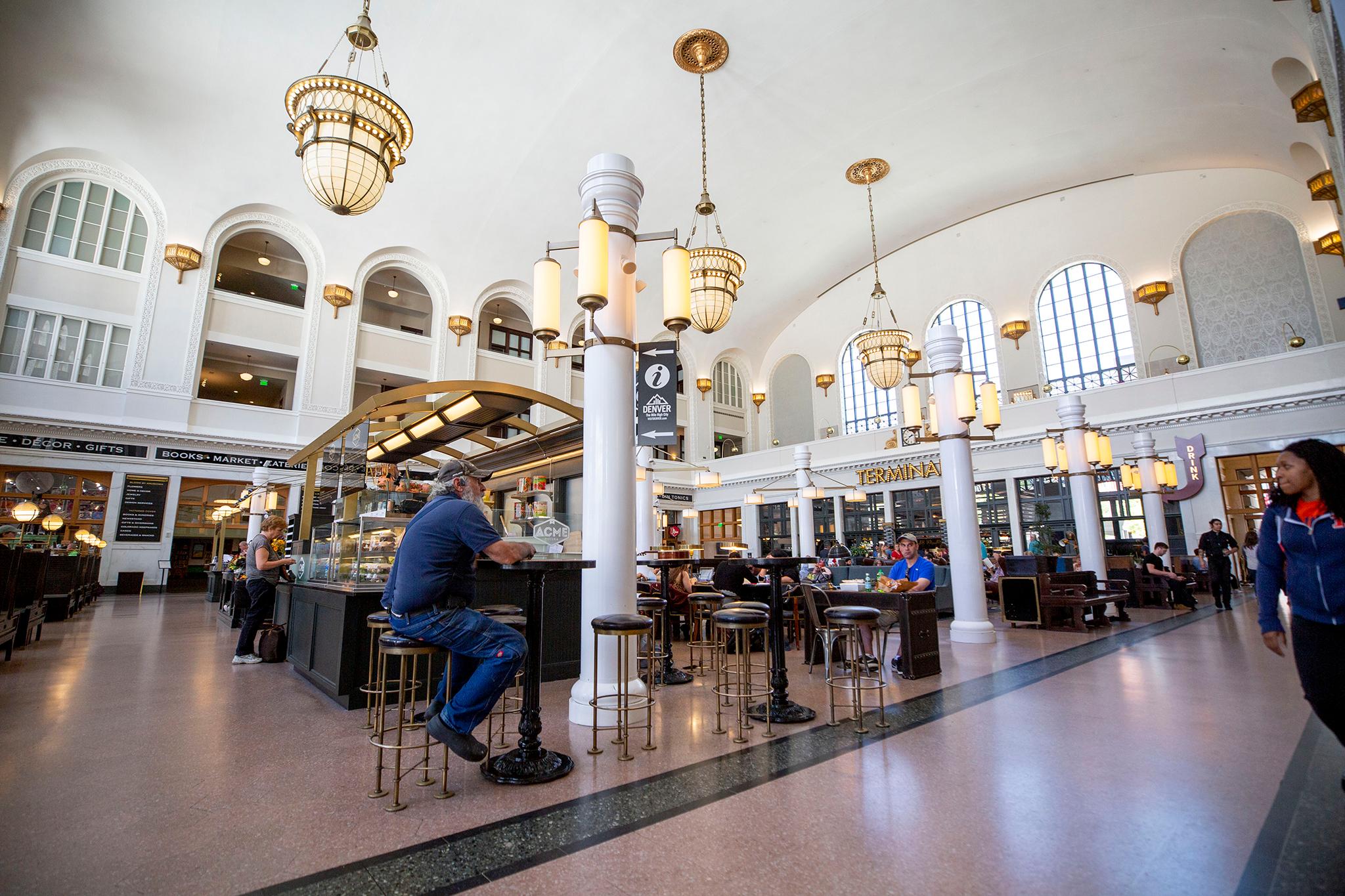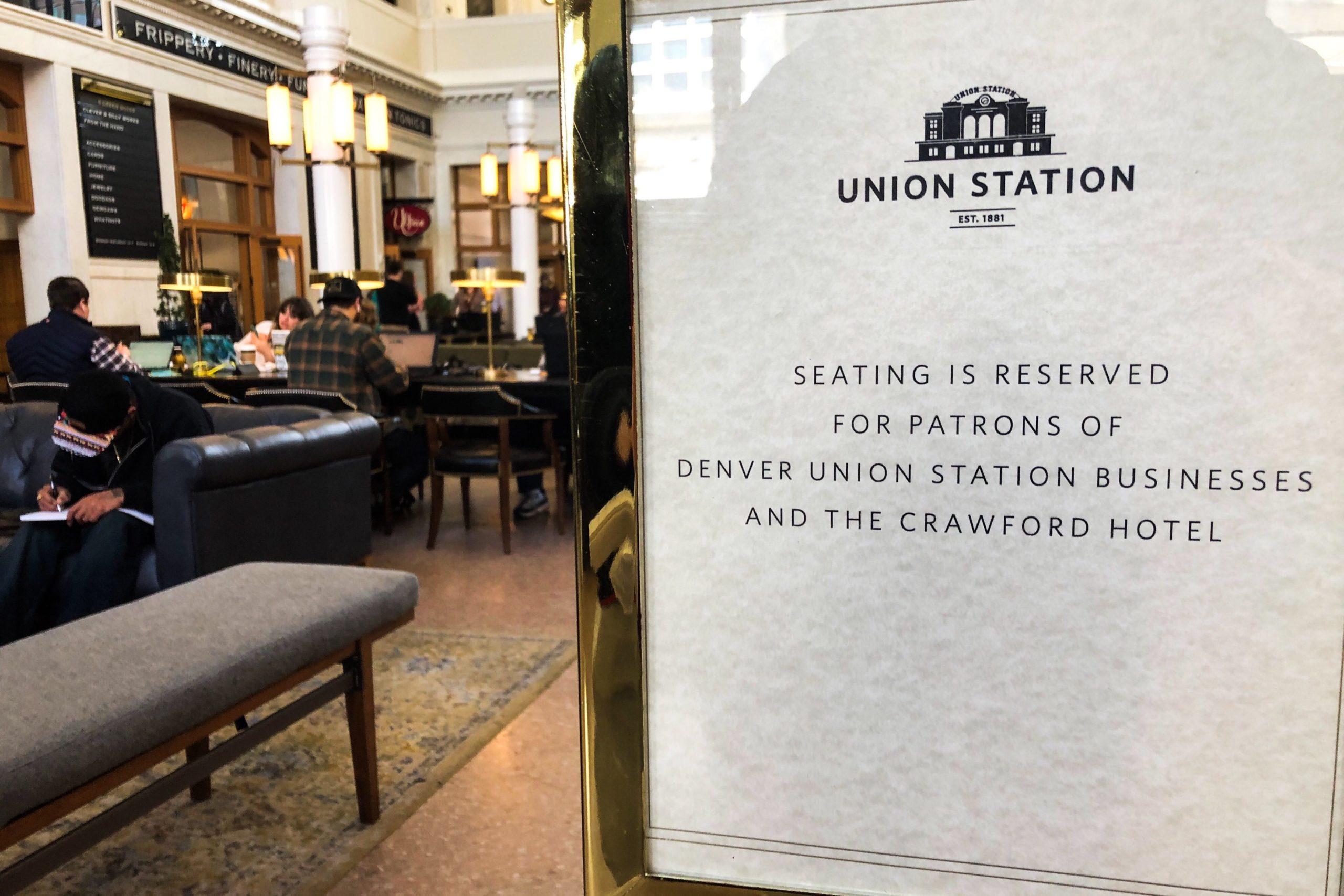Denver's living room now resembles a private club. Well, at least the really nice part.
Taxpayers helped fund the $518 million redevelopment of Union Station, but a new policy blocks anyone who doesn't spend money at the transit and commercial hub from sitting at its tony tables and relaxing on its comfy couches.
Union Station is publicly owned -- the Regional Transportation District holds the deed -- but privately run. A group of companies known collectively as Union Station Alliance, which oversaw the building's revival, leases the building and dictates what happens at the Great Hall, the name of the purportedly public space ringed by restaurants and shops.
People experiencing homelessness frequent Union Station to charge their phones and warm up in the winter, which has created discord between homeless rights advocates and private, armed security guards. Some locals use drugs in station bathrooms, leading RTD to literally remove doors from stalls, Westword reported.
Denver Police Department officers have arrested people 36 times since Jan. 1 at Union Station. Crimes included criminal trespassing, drug possession, public disorder and larceny, according to DPD statistics.
Sage Hospitality, the company that runs day-to-day operations at the station, called the decision to close the lounge to the general public a "service extension."
In other words, it's good for people who buy stuff.
"This was a collective decision made by Denver Union Station's management team in response to the increase in community activations and highly attended events," Sage Hospitality spokesperson Sarah Hendricks said via email. "We've received an overwhelming demand for our food and beverage offerings and will now provide extended service into the central area of the Great Hall."
Anyone who purchases an RTD bus or train fare is allowed to sit, Hendricks said, though the sign at the Great Hall doesn't say that.
RTD did not have a hand in the new policy, which began last Monday. The transit agency was told three days prior to the new setup, which started Feb. 17. RTD did not grant an interview.
"RTD has been in communication with Sage Hospitality about this policy change for Denver Union Station, and we have been assured that the Great Hall will remain open and available to the public for access to transit as required by our lease agreement," an RTD spokesperson said via email.

Travelers and locals "are welcome to enjoy" the wooden benches on the station's west end and the Terminal Bar's picnic-style tables, Hendricks added.
Shelby Williams sat at one of those wooden benches Monday, wearing a hospital bracelet and eating a plain piece of bread.
Williams, who hangs out at Union Station two or three times a week, said he's been kicked out of the Great Hall for falling asleep in the newly signed-off area. He was unaware that people can now be kicked out for not buying something.
"I would say they need to use more discretion," Williams said, adding that who gets to stay and who has to leave "doesn't seem random."
Armed, private security guards with Allied Universal Security enforce the rule. The company did not return a press inquiry and a security guard approached by Denverite on Monday referred us to Sage Hospitality.
A big reason for the commercial success enjoyed by Union Station businesses is the publicly funded space that anchors it, said Ethan Kent, a research fellow at Project for Public Spaces, a New York-based group that helps cities design public places around the world.

"Retail environments are trying to imitate public space more and more but obviously co-opt it sometimes in the process," Kent said. He pointed to Larimer Square, which he says drew people with a good public experience and commercial activity simply adds to it.
"No one user group should dominate (the space)," Kent said. "If it's just wealthy shoppers, that's pretty boring for everybody. If it's homeless people and drug dealing, that's a problem, too. But the way to deal with it isn't to exclude or denigrate one of those populations, but to figure out how to keep bringing in additional populations and engaging these different groups to improve the spaces for all who see themselves as stewards and participants in a space."
Correction: Because of incorrect information provided by RTD, this article wrongly stated that the transit agency was not consulted until after the policy change. RTD was actually informed three days prior to the change.













